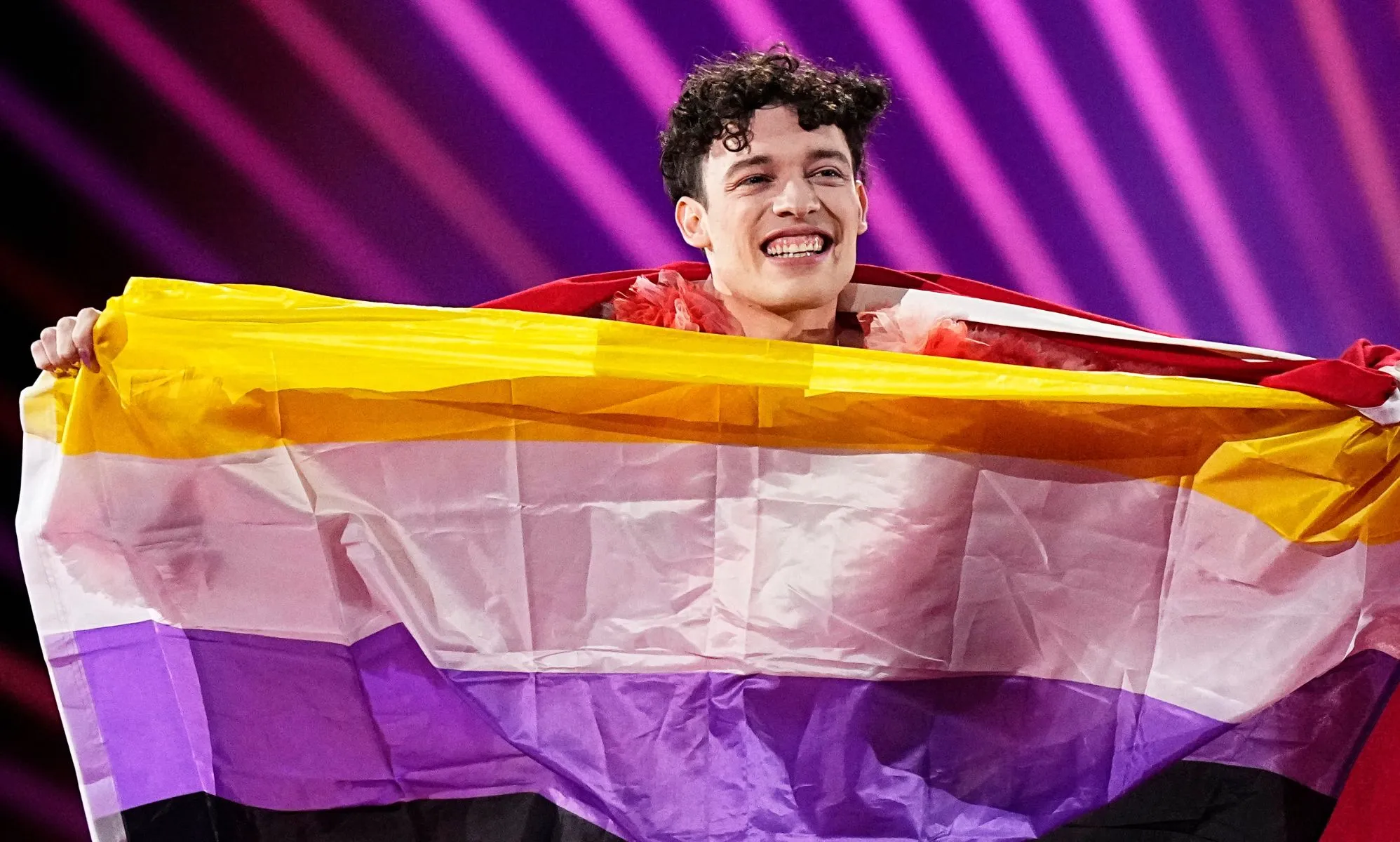Eurovision winner Nemo says non-binary flag wasn’t allowed in arena: ‘Did it anyway’
Sign up for more LGBTQ+ news and updates at TrueQueer.
Nemo had just made history by becoming the first non-binary winner of the Eurovision Song Contest. Their victory was a momentous occasion, not just for them, but for the entire LGBTQ+ community. However, amidst the celebrations and accolades, Nemo revealed that they had to face discrimination and resistance even on the biggest stage in Europe.
As Nemo stood on stage to represent Switzerland with their song “The Code,” they proudly held up the non-binary flag – a symbol of their identity and a representation of the diversity within the LGBTQ+ community. The moment should have been one of pure joy and celebration, but Nemo’s revelation at a press conference after their win painted a different picture.
The 24-year-old singer disclosed that they had to “smuggle” their non-binary flag into the Malmö Arena, where the Eurovision Song Contest was held. According to Nemo, the European Broadcasting Union (EBU) had allegedly prohibited the entry of non-binary flags into the arena, prompting them to take matters into their own hands.
In a bold statement, Nemo called out the EBU for what they perceived as a double standard. They expressed disbelief at the fact that fans were barred from bringing non-binary flags into the arena, highlighting the inconsistency in the EBU’s policies. Despite the restrictions, Nemo defiantly brought their flag onto the stage, symbolizing their identity and standing up against discrimination.
The controversy surrounding Nemo’s flag was just one of many issues that marred this year’s Eurovision Song Contest. The event faced widespread calls for a boycott due to the EBU’s decision not to prevent Israel from competing amidst the country’s conflict with Hamas. The tensions surrounding the contest were palpable, with controversies ranging from disqualifications to censorship.
Hours before the contest began, Joost Klein from the Netherlands was disqualified following an alleged altercation with a production crew member. Meanwhile, Ireland’s non-binary star Bambie Thug faced rejection from the EBU when they wanted to include pro-Palestine messages in their performance. The frustrations and discord among participants reflected a larger sentiment of dissatisfaction with the EBU’s handling of sensitive issues.
After winning the contest, Nemo used their platform to address the challenges and conflicts that overshadowed their victory. They acknowledged the intensity of the experience and the mixed emotions it evoked. While there was love and unity at Eurovision, there were also moments of sadness and disappointment, particularly in light of the controversies that surrounded the event.
Despite the obstacles and resistance they faced, Nemo’s victory as a non-binary artist sent a powerful message of visibility and representation. Their resilience in smuggling their flag into the arena and standing up against discrimination highlighted the importance of inclusivity and acceptance in spaces like Eurovision. As the first non-binary winner of the contest, Nemo’s triumph will undoubtedly leave a lasting impact on future editions of Eurovision and pave the way for greater diversity and representation in the music industry.
Follow us on: Facebook for more LGBTQ+ news and updates at TrueQueer.
Eurovision
![]()

